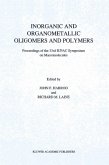Asphaltenes have traditionally been viewed as being extremely complex, thus very hard to characterize. In addition, certain fundamental properties of asphaltenes have pre viously been inaccessible to study by traditional macroscopic methods, further limiting understanding of asphaltenes. These limitations inhibited development of descriptions regarding the microscopic structure and solution dynamics of asphaltenes. However, a variety ofmore recent studies have implied that asphaltenes share many chemical properties with the smaller, more tractable components of crude oils. Recent measurements have indicated that asphaltene molecular weights are not as !arge as previously thought, perhaps in the range of 600 to I 000 amu. In addition, new experimental methods applied to asphaltene chemical structures have been quite revealing, yielding a broad understanding. Conse quently, the ability to relate chemical structure with physical and chemical properties can be developed and extended to the understanding of important commercial properties of asphal tenes. This book treats significant new developments in the fundamentals and applications of asphaltenes. In the first section ofthe book, new experimental methods are described that characterize asphaltene structures from the molecular to colloidallength scale. The colloidal properties are understandable in terms of asphaltene chemical structures, especially with regard to the heteroatom impact on bonding. However, quantitative measurements of the of asphaltene self-association still need to be determined. In the second section of enthalpy this book, the fundamental understanding of asphaltenes is related riirectly to asphaltene utilization.
Dieser Download kann aus rechtlichen Gründen nur mit Rechnungsadresse in A, B, BG, CY, CZ, D, DK, EW, E, FIN, F, GR, HR, H, IRL, I, LT, L, LR, M, NL, PL, P, R, S, SLO, SK ausgeliefert werden.
Hinweis: Dieser Artikel kann nur an eine deutsche Lieferadresse ausgeliefert werden.









